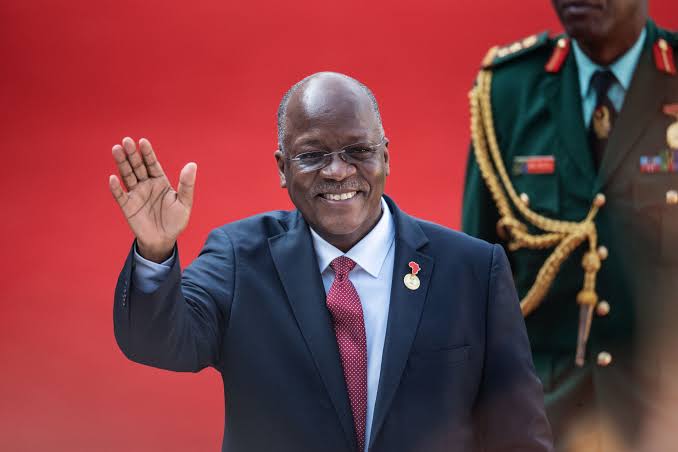Tanzania’s leadership called for a smooth succession on Thursday after president John Magufuli, died from heart disease following an 18-day absence from public life that drew speculation about his health.
An opposition leader urged the immediate swearing in of vice president Samia Hassan as successor, saying that would avoid a constitutional vacuum and prevent uncertainty.
Magufuli’s death, the first of a Tanzanian leader while in office, opens the prospect that the country would gain its first female president.
The constitution says Hassan, 61, should assume the presidency for the remainder of the five-year term that Magufuli began serving last year after winning a second term.
Hassan addressed the nation on television late on Wednesday, saying Magufuli had died from the heart disease that had plagued him for a decade.
She said burial arrangements were under way for the 61-year-old leader but did not indicate when she would be sworn in.
Government spokesman Hassan Abbasi did not respond to calls and texts seeking comment on succession plans.
Magufuli had not been seen in public since Feb. 27, sparking rumours he had COVID-19. On March 12, officials denied he had fallen ill and on Monday Hassan had urged Tanzanians not to listen to rumours from outside the country.
As late as Wednesday, she sent ‘greetings’ from Magufuli in a remarks to an audience in the coastal region of Tanga.
“The VP has to be sworn in immediately,” opposition leader Zitto Kabwe told Reuters by phone from Dar es Salaam.
“The constitution doesn’t allow a vacuum, I will be concerned if the day passes without her being sworn in.”
A source who advises businesses operating in Tanzania said “The next 48 hours are crucial There is likely to be uncertainty.
“Some people will want to purge some Magufuli hardliners, but given how he restructured the intelligence services, that is easier said than done.”
Nicknamed “The Bulldozer” because of his reputation for pushing through policies despite opposition, Magufuli drew international criticism for his unorthodox and increasingly authoritarian tactics.
Although Hassan publicly championed Magufuli’s leadership style and frequently represented him abroad, she has been more soft spoken and less confrontational than the president.
“The Vice President hasn’t given the impression of significant popularity or influence within the (ruling party),” said Fergus Kell, Africa analyst at the Chatham House think-tank in London.
“This could throw up some potential challenges in terms of managing competing interests and generating the required support within the ruling party to govern effectively.”
Magufuli was a vocal COVID-19 sceptic who urged Tanzanians to shun mask-wearing and denounced vaccines as a Western conspiracy, frustrating the World Health Organisation.
Traffic moved normally on Thursday morning and there was not a heavy security presence in Dar es Salaam, the country’s biggest city, a Reuters witness said.
Some people stood on street corners in the downtown area reading newspapers including a headline blaring “Grief” and wept. As has been the case throughout the pandemic in Tanzania, many people were not wearing face masks.
Tundu Lissu, Magufuli’s main rival in the October election when the president won a second term, said in an interview with Kenya’s KTN that it was time for the country to open a new chapter after Magufuli “caused havoc to our country.”
East African governments offered condolences, but some people from the region were critical of his stance on COVID-19 and his leadership style.
“It has been a horrendous five years in Tanzania,” tweeted Tanzanian lawyer Fatma Karume.

 Latest1 week ago
Latest1 week ago
 Health1 week ago
Health1 week ago
 Football1 week ago
Football1 week ago
 Latest7 days ago
Latest7 days ago
 Crime1 week ago
Crime1 week ago
 Latest7 days ago
Latest7 days ago
 Football5 days ago
Football5 days ago
 Crime1 week ago
Crime1 week ago

